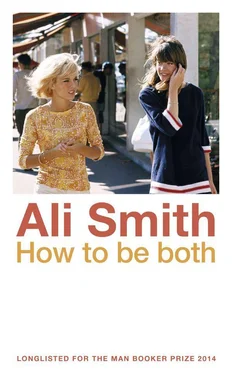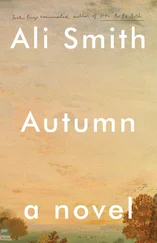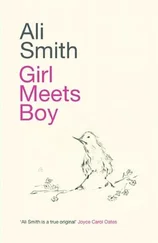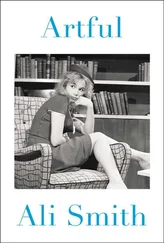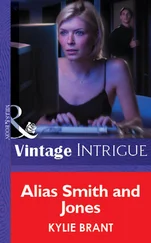She looks up.
I’d do it, she says. I’d have done it, if it was you.
If it had been you, George says inside her head.
I’d have minotaured you for free, H says.
She looks George laughingly and seriously right in the eye.
Or maybe, if it were you, George thinks.
She lies down flat on her back on her mother’s carpet. Her mother got this carpet at an antique shop off Mill Road. Well, antique. Junk shop, really.
H lies down next to her so that their heads are level.
Both girls stare at the ceiling.
The thing is, doctor, H says.
George hears her from the miles away where she’s thinking about what the differences might be, and what her mother would have said they were, between antiques and just old junk.
I have this need, H is saying.
What need? George says.
To be more, H says.
More what? George says.
Well, H says and her voice sounds strangely altered. More.
Oh, George says.
I think I might be, by nature, H says, a bit more hands-on than hypothetical.
Then one of her hands reaches and takes one of George’s hands.
The hand doesn’t just take George’s hand, it interlaces its fingers with it.
This is the point at which all the words drain out of the part of George’s brain where words are kept.
H’s hand holds her hand for a moment, then H’s hand lets go of her hand.
Yes? she says. No?
George doesn’t speak
I can slow down, H says. I can wait. I can wait till it’s right. I can do that.
Then she says,
Or maybe you don’t —.
George doesn’t speak.
Maybe I’m not —, H says.
Then George’s father is at the door of the room, he’s been there for God knows how long. George sits up.
Girls, he says. George. You know I don’t want you in there. Nothing’s sorted. There’s a lot of important stuff, I don’t want anything messed with in there. And I thought you were organizing supper tonight, George.
I am, George says. I will. I’m just about to.
Is your friend staying for supper? her father says.
No, Mr Cook, I’ve got to be home, H says.
She is still lying on her back on the floor.
You’re very welcome to stay, Helena, her father says. There’ll be plenty.
Thanks, Mr Cook, H says. It’s really nice of you. I’m expected at home.
You can stay for supper, George says.
No I can’t, H says.
She gets up.
See you, she says.
A minute later she is not in the room any more.
A moment after that George hears the front door of the house closing.
George lies back down flat on the carpet again.
She is not a girl. She is a block of stone.
She is a piece of wall.
She is something against which other things impact without her permission or understanding.
It is last May in Italy. George and her mother and Henry are sitting after supper at a table outside a restaurant under some arches near the castle. Her mother has been going on and on to them (well, to George, because Henry is on a computer game) about fresco structure, about how when some frescoes in a different Italian city were damaged in the 1960s in bad flooding and the authorities and restorers removed them to mend them as best they could, they found, underneath them, the underdrawing their artists had made for them, and sometimes the underdrawings were significantly different from their surfaces, which is something they’d never have discovered if there hadn’t been the damage in the first place.
George is only half listening because the game Henry is looking at on the iPad is called Injustice and George thinks Henry is far too young for it.
What game is it? her mother says.
It’s the one where all the cartoon superheroes have turned evil, George says. It’s really violent.
Henry, her mother says.
She takes an earphone out of one of Henry’s ears.
What? Henry says.
Find something less violent to do on there, his mother says.
Okay, Henry says. If I must.
You must, his mother says.
Henry puts the earphone back in and clicks off the game. He clicks on a download of Horrible Histories instead. Pretty soon he is giggling to himself. Not long after that he falls asleep at the table with his head on the iPad.
But which came first? her mother says. The chicken or the egg? The picture underneath or the picture on the surface?
The picture below came first, George says. Because it was done first.
But the first thing we see, her mother said, and most times the only thing we see, is the one on the surface. So does that mean it comes first after all? And does that mean the other picture, if we don’t know about it, may as well not exist?
George sighs heavily. Her mother points across the way, to the castle wall. A bus goes past. Its whole back is an advert for something in which there’s a Madonna and child picture as if from the past, except the mother is showing the baby Jesus how to look something up on an iPad.
We’re sitting here having our supper, her mother is saying, and looking at everything that’s round us. And over there. Right there in front of us. If this was a night seventy years ago –
— yeah, but it isn’t , George says. It’s now .
— we’d be sitting here watching people being lined up and shot against that wall. Along from where those seats for the café bar are.
Uch. God, George says. Mum . How do you even know that?
Would it be better, or worse, or truer, or falser, if I didn’t? her mother says.
George scowls. History is horrible. It is a mound of bodies pressing down into the ground below cities and towns in the unending wars and the famines and the diseases, and all the people starved or done away with or rounded up and shot or tortured and left to die or put up against the walls near castles or stood in front of ditches and shot into them. George is appalled by history, its only redeeming feature being that it tends to be well and truly over.
And which comes first? her unbearable mother is saying. What we see or how we see?
Yeah, but that thing happening. With the shooting. It was aeons ago, George says.
Only twenty years before me, and here I am sitting here right now, her mother says.
Ancient history, George says.
That’s me, her mother says. And yet here I am. Still happening.
But it isn’t, George says. Because that was then. This is now. That’s what time is .
Do things just go away? her mother says. Do things that happened not exist, or stop existing, just because we can’t see them happening in front of us?
They do when they’re over, George says.
And what about the things we watch happening right in front of us and still can’t really see? her mother says.
George rolls her eyes.
Totally pointless discussion, she says.
Why? her mother says.
Okay. That castle, George says. It’s right in front of us, yes?
So I see, her mother says.
I mean, you can’t not , George says. Unless your eyes don’t work. And even if your eyes didn’t work, you’d still be able to go up to it and touch it, you’d be able to register it being there one way or another.
Absolutely, her mother says.
But though it’s the same castle as it was when it was built way back when, and it has its history, George says, and all the things have happened to it and in it and round it and so on ad infinitum, that’s nothing to do with us sitting here looking at it right now. Apart from it being scenery because we’re tourists.
Do tourists see differently from other people? her mother says. And how can you have grown up in the town you’ve grown up in and not consider what the presence of the past might mean?
George yawns ostentatiously.
Читать дальше
